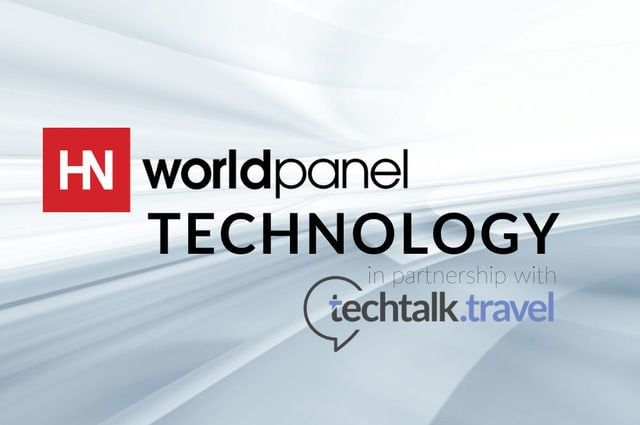SHIFT + DEL! Do we need a massive reset?
22 experts shared their view
From the days of holidex, Fidelio v6 and Micros 2700 we have for the last 30 years been adding technology upon technology in hospitality. In my last classes with my students (online), one reoccurring question was always, "why is there not one solution that can do everything". Once we discussed this more (language requirements, local fiscal reporting, support, etc…), the students got the complexity of using software and systems to run businesses. But moving forward, future managers are going to want their hospitality software to behave more like WhatsApp, Instagram or Snapchat. Download, install and work. No training or massive configuration to be done. So, where does this leave the hospitality industry? Do we keep on going with our "Lego" approach or do we need to say hold on, that's enough? Let's restart from scratch and what would that look like and how could we conceivably even do that.
HN world panel l CTRL + ALT + DEL!
I fully agree with your students. We still need 50+ applications to run a single business unit (hotel) and it's not even that complicated at least for most of it. Why are there PMSs that can't send an HTML confirmation or do an online check-in? Should that not be part of the standard package? And worse why is it still so hard to have the different systems talk to each other?
There are two ways out of this: a single platform that meets most of the needs of our hotels similar to a core banking system or a CRM for retail, or micro services based mini apps that talk to each other via open and standard APIs.
I believe the last one is where we should go. It will give us the benefits of a single system as well as the opportunity to innovate and customize based on the needs of a hotel or brand.
Yes, we need to continue with our the “Lego” approach. Lego approach is about having the best toy for each child in every moment. Means innovation, agility and personalization. Every company hotel, individual hotel has their own recipe to operate, sell, deliver services for their properties. This means they have their own hotel technology stack recipe to support their business.
In terms of technology, the evolution of PMS is a great “Lego” approach example. We all know the PMS is losing functionalities, some even said that it can lose its central role in the technology stack. New niche-apps have raised in the recent years to deliver 2 or 3 core functionalities, not more, that allow the hotelier to streamline certain process to reduce cost or increase the revenue. Furthermore, open API's concept and marketplaces are here to boost our Lego playground, giving the hoteliers the possibility to innovate quickly, agile, at a good price, adapting to the demand and the evolution needs of their guest. We do not need a reset, but we have a revolution.
In my opinion, the fragmented state of hospitality technology is going to stay with us for many more years!
I head up the technology function at a German based Hotel Management Company dealing with five different brand's and doing business in (just) two European countries: Bringing the various brand-standards, fiscal/legal requirements and my own technology stack together, means compromise in the possible integrations and data-flow.
In addition to the fragmented stakeholders and competing interests they have, our industry has still a way to go attracting sufficient financial- and human-resources to ease the tech-complexity for our future managers.
Without oversimplifying this, I get the students question (point of view), And moving forward; they will not want to have to implement or use overly complex and multiple systems because they have never had too. This generation of future hospitality leaders has grown up with “out of the box” easy to use solutions. Sign in with your Google or Facebook account, and you are up and running. So they will want to seek out hotel technologies that behave in the same way. That's why they so appreciate tools such as Slack as a generation. How we can translate that mindset into the complex systems we are currently using will be a very difficult one to do. Shift delete all; yes, I would love that to happen, but challenging and to be honest virtually impossible.
Open API and marketplaces will probably win the battle as it allows for a transition method; yes, we will still use multiple systems “best in class” but the experience will be more seamless and work better. Systems will have to improve UI and give a better overall experience or risk being abandoned. Also, a different approach by independent and chains will become obvious as their needs differ.
Well, there are some apps today that claim to be "all things to all users." (Cloudbeds is an example.) Yet, larger properties are far more complex and require features or apps that manage sales contracts, function rooms, group and complex suite management and more. And no single app can manage third party hardware such as locking systems. So the parallel to Instagram and WhatsApp is inappropriate for this industry because of the complexity and third party hardware integration. On the other hand, there should be more focus by suppliers on the same ease of use without formal training that most downloadable apps offer today - complexity aside. A good application hides that complexity and either predicts or guides the user through a process. This issue is not unique to hospitality.
I think there are really two different segments. The enterprise companies will want a best-of-breed approach where they get to assemble their stack with highly specialized systems that are the best at what they do, software that can really perform well for specific tasks and which is robust enough to manage multiple properties, regional reporting and configuration etc. And then there's the independent hotels or small groups which don't need all the bells and whistles and who just need something that works. Where simple and basic applications which are locally compliant can do the trick. Both sectors are in the process of being reset, mostly because the existing technology just isn't built for modern requirements.
Hotels are and will continue to be a complex business environment requiring a multitude of applications in different operating environments. It's simply a dream to think that one 'simple integrated solution' will do the job.
What we need as an industry comes down to:
- Easy-to-install and industrialized/standardized connectivity tools (open & public APIs which operate as a plug-and-play environment) allowing hoteliers to control their critical data by having a single data source of truth.
- Applications that offer a contemporary UX (user-experience) similar to what exists today in mainstream consumer apps.
- Suppliers of applications that have their act together in terms of connectivity and UX. Enhanced connectivity should be a primary concern for suppliers, not hoteliers.
Join the HITEC Europe Session “Why your PMS may no longer be the center of your universe?” on June 9th to get more inside!
Do we need to restart from scratch? My answer is “Yes, we don't have a choice!”. The world has changed massively. By contrast hotel technology has evolved surprisingly little. For example, the world has moved to apps; in the hotel business we still use “systems”.
When I began attending university late in the last century and wanted to listen to music, I went shopping for a stereo system. I looked at amplifiers, tuners, turntables and speakers. I purchased the various, somewhat-integrated components, installed the assorted cables, and then enjoyed my records. And of course, I had to get up and go to the turntable every 20 minutes to flip the record over or to put on a new one.
Fast forward to 2021, and boy, have things changed! Now I use my smartphone to access unlimited music choices. I build my own playlists. I listen through Bluetooth earbuds or my Sonify Wifi speakers. And that same smartphone is also my camera, my wallet, my social media access tool, my map, my bank access, my home locks and lights controller, and so very much more.
Sure, we have technically-sophisticated vehicles and smart homes, but in truth, nothing remotely approaches the transformation of cell phones from …. mobile telephones ….. into super controllers. Always on, always within arm's reach, our smartphones help us communicate, recall, research, record, praise, complain, brag, organize, shop, and dream. They are our ultra-convenient access point into an unlimited universe.
While this universe is limitless, it is increasingly the home of “supersites” (or maybe more accurately, SuperMerchants). Here I am referring to functionally-massive social websites/apps like Facebook, to shopping sites like Amazon, and travel sites like Expedia, each of whom offer access to so much with a single log-in. And, truth-be-told, these sites are limited, possibly even primitive, in comparison with the scope of choice, integration and performance of WeChat and Alipay – a remarkable, limitless new Internet-based world is at our fingertips (or at our voice command).
Constantly using this always-present tool and always on-line resources has, I would suggest, subtly, unconsciously and irreversibly, changed us as human beings. We now expect to instantly access, communicate, question, and manage much of our life using our smartphones. That means, our personal life, and increasingly, our business life as well. More and more, propelled by the pandemic, we expect 24/7 access, responses, and control in our work environment via our smartphone.
So, what does this move to handheld, unified devices mean to hotel technology? It means that we have a serious (and still-growing) gap between today's electronics and our reliance (and commitment) in the global hotel industry to conventional-style independent systems – CRS, PMS, RMS, POS, and so many others.
Have our hotel systems evolved? Yes, some. Today they are increasingly cloud-based, which is a major advance. They remain however, primarily accessed by large desktop monitors, difficult to learn and use, little-sharing of their data, and little-connected with the Internet-based world in which we spend more and more of our time. In a world where personal and business activity increasingly revolves around a hand-held device – sometimes only a handheld device – our legacy systems are increasingly isolated, impenetrable, unproductive, and absent from the online world we increasingly inhabit.
Is this “most technology vs. hotel technology” gap irreversible? Or is there an alternative, viable path forward for hotel sales, operations, and management technology? Can we reconfigure hotel on-property and hotel brand management technology from their conventional “systems” format to, effectively, “apps”?
The answer is “Not easily, but yes, it can be done”. And the proof-of-concept is already present in our industry. Specifically, it is present (and functioning successfully) in the technology platform developed by OYO Hotels and Homes. OYO used in-house IT design and development resources to create OYO OS – a suite of over 20 smartphone or tablet-accessed apps, all resident in a single cloud-based OYO technology platform.
Designed with a common look-and-feel, while also multilingual and functionally localized to perform comfortably in specific regions, the OYO OS Platform gives us a glimpse of what may be the norm in hotel technology design in 5, 10 or 20 years.
Can we in the hotel IT industry transform our current hotel operations-enabling expertise into a new format, into a new delivery package? Yes, but there will be challenges. They include reengineering (and sometimes splitting), current workflows to create intuitive pathways. We will need to rework task packaging and presentation to function quickly and successfully on a small screen. The challenges also include developing both look-and-feel commonality and deep functional integration with numerous other “sibling" apps.
In OYO Hotels' OYO OS proprietary suite of hotel apps – supporting guest shopping and booking, on-property operations, back-of house, manager, owner and franchisor activities, and much more – we have an option, and quite possibly the dominant model, for the structure of the next generation of hotel technology.
So, another question looms, Who will address and overcome these challenges? Will it be one (or several) of today's hotel system vendors, or will it be a hotel IT vendor who has yet to emerge? This is going to be interesting to watch.
This is one of the focal questions in hospitality: will we ever be able to become a plug-and-play industry? The short answer is no, we won't, at least not in the near future. There are several reasons for that: first of all, most hotel software are way more complicated than the ordinary apps we install on our phones daily. The level of complexity in, let's say, a PMS is exponential when compared to a messaging app. Secondly, there's the issue of integrations with third parties. When it comes to API, at least in my opinion, quality should always override quantity, yet it's not unfrequent that vendors claiming to be "open" offer poor integrations. It's often the case with PMSs and RMSs: the accuracy of the data flow between the two is fundamental, yet the quality of the integrations is often mediocre. Lastly, there's the question of staff training: the learning curve of Instagram is extremely short, while some hotel software (again, mainly PMSs) can take even weeks to be mastered. Sure, the industry is slowly adopting a marketplace-like approach, and systems are becoming increasingly open and agile, but I doubt we'll be able to adopt a real plug-and-play approach anytime soon.
A reset? Yes, and it's already happening! Many travel companies have found it's easier to justify adding a few bodies to shore up weaknesses in their processes rather than investing in technology to automate them or fixing the processes to reduce the errors in the first place. While many of these organizations were still profitable (at least in the pre-Covid days,) creeping overhead made for economically fragile operations and opened up opportunities for new entrants to gain ground. New entrants like TripActions in the TMC space, Hopper in the OTA world, and Cloudbeds in the hotel technology arena have shown how they can start small, gain traction, and grow aggressively at the expense of even the largest incumbents. Innovation isn't just for startups though: look at how Amadeus Hospitality taught the elephant to dance with its new ABS-native central reservations system.
Well-run startups can be problematic for incumbents, but legacy companies needn't stand still. When organizations, especially those in technology where there is so much leverage to be applied, can step back to take stock of their customers' needs and apply their knowledge and resources to find points of leverage where they can innovate. In my experience the most difficult issue, and in many cases the fatal issue, is a company culture that swaddles the organization with inertia. Too often the successes that have accrued to “the way we've always done it” keep organizations from trying new things to better serve changing customer needs and expectations. What worked yesterday isn't necessarily what's best today. Find out what is, and start that reset!
I do believe that the future of hospitality operations lies with a tool similar to WhatsApp or Instagram. Such a tool, allowing for the exploration of new ideas and innovation while at the same time exploiting operational proficiency and efficiency, would render operations simpler, making the user's life much easier.
Even though I have become adept in using multiple systems in one single property, the complications which are created still surprise me, especially when in real life we have the simplest communication tools. With just a few simple clicks I can now share, receive, or send valuable information simultaneously to multiple parties from one single app…
So why do we have to face situations at work where valuable customer information goes missing simply because different departments use different systems without proper collaboration between one another?
I believe that with the technology we have available, there should be no need to struggle so much. Technology could render operations as simple as entering a profile name as with Instagram and receiving all the necessary customer preferences and personal details within one click, no matter which department one is working in. I do not believe that holding on to the Lego approach is the right thing, as even the Lego company itself which invented bricks construction struggled in the early 2000s and had to reinvent its whole operations system to adapt to the industry standards … so why should the hospitality industry be an exception?
The idea of "one-stop-shop", a product that does everything, is a flawed one. It looks promising in theory but never works in practice, because no one can do everything well, and therefore companies specialize in specific areas, and clients eventually buy "best-in-class" from different providers. Hospitality tech software needs to be rethought with usability in mind, yes, but better usability does not mean one single tool. If anything, the world of tech is going in the opposite direction, with products talking to each other through APIs to create personalized experiences.
WhatsApp and the likes are B2C apps, so to make the comparison fair hotel software should be compared with the likes of Salesforce, Workday or Hubspot, all applications that today are fairly easy to activate, but to maximize their potentials, they suggest/require some training and implementation effort.
As for hotel software...
The reset is already underway. New PMSs are much easier to install, active and require very little training. They have connect guests applications enabling the guest to checkin, obtain a key and buy an upsell, all without the need for training. The integrations of other hotel software, thanks to up to date technology around APIs, market places (StayNTouch, Mews and apaleo for example), connecting new innovations is virtually free and now very easy.
I was involved in the development of Fidelio v6 and lead OPERA Product for many years, then StayNTouch PMS and now ROOMDEX, it's amazing how technology has evolved, also in hospitality. I came to realize it just this week again, when we were trying to connect ROOMDEX to OPERA PMS legacy v5.5, that's tough and expensive to do. What 20 years ago looked like a great design, is now obsolete, and hard to implement and train. Compare this to doing the same integration with for example StayNTouch, once the development was completed, all the hotel needs is a simple approval to connect anything to a new Cloud PMS, mostly at no cost, and very little if any training. The same applies for many of the new core and add on hotel software applications.
So in my opinion, the reset is underway, technology vendors started that some years ago, Hotels just have to continue to embrace and convert to it! (Now is the time).
I always enjoy this particular topic.
The truth is that there have been multiple solutions brought to industry over the years that do/did provide a one stop solution for the lions share of hospitality front and back of house operations. The truth is that above industry technology solutions have consolidated business operations across departmental silos into working data repositories and processes a very long time ago. The truth is that the foundational reality of an entire business needing to work in a cohesive environment is a technological reality. It's only improved as technology has improved.
The part that is missing is industry courage and the recognition that ultimately we must work in this manner.
If single data sets, true customer and operational visibility, improved job roles, cost effective operations and profitability are the business goals then there is a singular path to that objective.
If you do not believe this is true then why would anyone want an interface or connectivity between two disparate systems? If you do not believe this is true then why is every major industry technology provider assembling or building suites of software solutions to provide 'the entire environment', disparate as it may be. If you don't believe this is true why do you think global tech is constantly adding functional and data gathering capability to their central technology environment.
We continue to hear the same nonsense about perceptions of technology providers;
Then I'd have one vendor (vs. 50).
What if something went wrong? Things go wrong now. Technology fail rates are negligible.
I want things to be simple (in a highly complex environment that we make more complex).
We don't want to pay for education (but our staff don't know how to use the technology and our customer satisfaction is down).
They are missing this one piece of functionality (out of thousands that are supported).
It's not possible for one company to do a good job of everything (in someone's point of view).
That would be hard to do (so lets stay where we are and complain).
In short there is lots of poo-pooing and naysayers from a crowd who've never actually done it, tried and failed or tried and succeeded.
From direct experience this environment is available, achievable (yes, it does require some work), and it works. The results are outsized. But the part that is most important is that you will break free from the size and shape of the various Lego blocks and gain the freedom to fundamentally redesign the operation of your business to meet the multiple challenges of the new hospitality dynamic.
You will also sell more hospitality product and service and make more money.
But it might take some effort. Definitely some courage. A pinch of leadership.
A massive reset would be wonderful — lots of problems bypassed thanks to the miracle of 20/20 hindsight... but it isn't going to happen. Wanting to be more like popular apps is a great thing if you have multiple millions of buyers, or even millions of free users who are willing to suffer the ads and the use of their personal data. Sadly, there is no model where highly interconnected business software just starts over.
I've been with software companies that wanted to reset in 90s, embrace the new century at Y2K and start over with a whole clean slate for the cloud, but it's never happened. STR estimates that there are 187,000 hotels worldwide, which sounds like a lot, but compare it to the estimated 1.4 BILLION Microsoft Office users. All of hospitality is too small an audience to start all over, even if one vendor wins every customer on the planet. We don't snap on new “Legos” because we can't think of any other approach to the problem — we just can't think of one that would return a profit to the shareholders. Besides, any product that could serve every hotel on the planet would be a VERY complex system that would require a lot of training and configuration. Save yourself a lot of time and aggravation — that model is available today.
“Why isn't there one solution that can do everything in hotel tech?” I guess this one solution already exists if you have a hotel with one room and an average LOS (length of stay) of 30 days, and it's called Excel. But for every other hotel that needs to engage, acquire, service and retain today's tech-savvy travel consumer the only option is to invest in a full-blown PMS-centric tech stack with dozens and even hundreds of specialized technologies and applications.
Luckily for our industry, this “one solution” is already here in the form of a cloud PMS with Open API (application programming interface) integration hub, just in time to help hoteliers in the challenging post-COVID era.
Why do I believe the cloud PMS with an Open API integration hub is this much coveted “one solution?” First, this solution offers much lower implementation and ongoing costs, great efficiencies, higher productivity and data security. Second, in the near and mid-term any full-service 3-4-5-star hotel will need over 100 APIs with third-party tech applications and solutions to be able to function and meet the needs and wants of today's digitally-savvy travelers. These include mobile and contactless guest experience, mobile locks, self-service and self-ordering kiosks, issue resolution apps, guest messaging, virtual concierge, IoT devices and utility management, smart room technology, entertainment hubs, CRM programs, back-office automation, etc.
All of these cloud applications and technologies need to interface with the property PMS in order to function, hence the cloud PMS-centric tech stack. In the past, this type of connectivity has been super expensive to achieve with a legacy PMS, which is hostile to any third-party interfaces by default. A cloud PMS with its Open API integration hub instantly solves this problem. Good examples: The new Oracle Hospitality Integration Platform with 3,000 API capabilities, StayNTouch Integration Hub with 1,100 APIs; Protel Air PMS Marketplace - 1,000 APIs, Cloudbeds PMS - 300 APIs etc.
The cloud PMS with Open API Integration Hub allows hoteliers to select best-of-breed cloud technologies and applications, and download, install and start using them on the fly.
This is the true “one solution” the industry has been dreaming of for decades. Instead of trying to be "all-in-one solution”, which stifles innovation and prevents quick adoption of new functionality needed to meet new guest requirements or sudden changes in the market conditions, like the contactless experience from last year, the cloud PMS harnesses the innovations of thousands of hospitality tech vendors in an easy to use “click-and-use” Open API integration hub.
I believe the current global pandemic is the ideal time for a restart in hospitality technology, but the reality is that the investment climate is not great right now. Feasibly, we are looking at a hybrid between a complete reset and a continued Lego approach, but an important question remains: who's paying for it?
Hospitality is often seen as a laggard when it comes to the investment and adoption of new technologies compared to other industries, and I would love for this to change. Part of what's hampered the speed of tech innovation in hospitality is an element of legacy mentality. Some hospitality systems and solutions were simply not built to be open, which has traditionally made integrations costly and complex and has resulted in a Lego approach. This is changing with the emergence of the SaaS model and the wider availability of open APIs, but it will not happen overnight. We need hospitality technology business models to evolve further to provide a better integrated technology experience for everyone involved.
The technology paradigm shift we've witnessed in sectors such as retail, banking and entertainment hasn't happened in hospitality yet, but I believe Covid-19 is accelerating this change. To evolve quickly, we need to embrace a more holistic approach to technology investment and adoption, which has traditionally been quite compartmentalised hence resulted in the Lego approach that's so common in our industry.
We know what the issues are, what's causing them and how to solve them, we now need to act to make that reset happen. My favourite proverb embodies this: “The best time to plant a tree is 20 years ago, the second best time is today.”
The goal to develop and implement solutions that lend immediate out of the box value is always going to be a priority. Technology of any kind is ultimately just a vehicle to help users and their organizations get to where they want to go. That's the most useful horizon line we've got as software providers. It helps to keep in mind that applications should not be based on a monolithic set of assumptions. They must be scalable, sometimes more in one area than in others. In this, the modular nature of hospitality technology solutions that can be unified as a whole platform via seamless integrations is a strength, not a weakness.
Embracing diversity, expecting change, and understanding that one size does not fit all is an important set of concepts in our industry. As technology and culture shift, responding to the needs and expectations of hospitality organizations to best serve their guests is a constant, even if the specifics change – which they have done and will continue to do. The question of continuing as we have been or rethinking everything from scratch should always center on how well we can meet that objective. What the technology looks like at the other end of that process will be in whatever form it needs to be.
I personally think that the “Lego” approach would continue to exist although most of the functions that the current numerous hospitality software solutions perform would probably be well integrated into the PMS. If a company needs to develop a hotel software that covers all the needs of the hoteliers, that would require a lot of time, expertise and would be a costly solution. Furthermore, if hoteliers use software from one supplier only, they will find themselves in a vendor lock-in situation – it would be very difficult to switch to another software supplier. The “Lego” approach provides greater flexibility. It allows hoteliers to use to solutions they want. It also creates competition among software companies that stimulates innovation but also allows software companies to focus on their core competencies. However, to increase the value of the different software solutions, they need to communicate smoothly with each other and be integrated into the interface/dashboard of the PMS. Hence, the PMS should serve as the platform that integrates the various software solutions into one hotelier-friendly ecosystem. If that is the case, will hoteliers care who is the supplier of a particular application?
Few industries remain more fragmented than hotel tech, but the solution is to create openness, not a monopoly. The past year hasn't been kind to anyone, but in particular small businesses—be they hotels or hotel tech providers—and that should concern all of us who believe in open competition and a level playing field.
Do we need a reset? Yes, now, more than ever, we need to reset the way we assess our ability to be nimble. But do hotel tech providers need to undo years of progression, because legacy systems still run rampant in the hospitality industry and lack the ability to support the changing needs of hoteliers, now and in the future? No. We need to educate hoteliers about these challenges. Importantly, we need to work together to provide technology that truly prepares hoteliers for a constantly-changing landscape that grows in complexity and uncertainty by the day. And, no single company can or should do this on their own.
We should remind ourselves that we've come a long way and that the needs of hoteliers do vary. For many small accommodation providers, for example, easy-to-use, plug-and-play solutions are now accessible within a matter of minutes. Typically, the needs of this small hotel segment is limited and their technology needs can be catered by one or two vendors, and this is happening already. For hotel operators with more sophisticated needs and a greater need for speed-to-market, however, technology can now provide the ability to run many best of breed applications in a more seamlessly-integrated fashion, and for hotel groups technology can help implement new pricing, across hundreds of properties, within seconds.
Arguably, one of the more promising developments in recent years has been the birth of marketplaces such as the Hotel App Store, where hoteliers can literally shop for applications such as guest messaging systems, customer survey tools, check-in and check-out solutions, revenue management software, and upselling tools, to name a few. Each of these products is an example of specialised, best-of-breed tech. It would take a small army of developers to build and maintain each of these on their own. So, the solution is not to monopolise segments, but to create an open ecosystem where integration is made easy and seamless by capable platforms, and which gives choice to hoteliers rather than a one-size-fits-all solution.
Connectivity is still key. Open APIs are key. Our goal as an industry should be to enable a smooth flow of data through every system, not simply our own. The behaviours and preferences of hotel guests have reset. It's time we also reset our ways of thinking about what's relevant to a hotel industry that needs adaptability rather than a single provider that believes more in dominance than helping hoteliers with choice.
Only an API First and true open platform approach will be able to address the problem of selecting the best and most innovative apps a hotel or hotel group needs today.
In fact, exactly for this reason we have started apaleo from scratch with the vision to disrupt the hospitality technology again and get rid of the burning problems of the industry.
We firmly believe that the old "all in one" approach is not viable any more. All legacy on premise, hosted or cloud PMS have failed to deliver a true open system with giving hoteliers the choice to easily put their tech stack together.
With the API First platform architecture available, users can select and onboard any app or third party software they want in an easy and seamless way by themselves. There are non boundaries any more in connecting systems as they existed and still exist in the legacy PMS world.
The future of hospitality is undisputedly riddled with technological concerns, and the industry is shaped by millennial staff and guests who lived and breathed through a digital revolution. So, embracing technological advancements is inevitable.
The question is not about whether but about when the reset should happen. I believe it is time!!
To this end, the first striking feature is that the systems of the future must be all-in-one.
Yes, no more LEGO!!
Why should we have PMS, POS, Contactless, Housekeeping, and Service management systems separately? Why should we have the core front-office operations stitched together from different vendors with different UX? It is the gaps or deficiencies of the so called legacy PMS systems that have led to the successful mushrooming of numerous complementary solution vendors. Alas, the gaps still remain..
I strongly believe that there are three core areas that should define the entire spectrum of technology software in a hotel;
- Distribution, including revenue and yield management
- Hotel operations solutions that include front of the house, guest management and back of the house solutions
- Centralised data management and chain or group solutions.
While all hospitality technology companies cannot be the jack of all trades, the serious solution providers must have complete focus and domain depth in at least one of these three areas.
The second reset that we need in tech is simplicity.
The tech overhaul should bring in simple systems with intuitive designs that guide users through the processes without extensive training. These systems must be self-educating, self-training models with quick and easy deployment. At the end of the day, the staff needs to focus on improving the customer experience, not be glued to a screen that is confusing to navigate.
The third reset is connectivity and interoperability between different systems and vendors.
How standard is a standard API? How open is an open API platform? Well, I am sure all of us know the answers to that. We also know that “the chain is as strong as its weakest link”. This means that the least number of connectors makes a stronger system. All-in-one systems can reduce connectors significantly, and that is a true reset from best-of-breed systems.
The final question is whether such an overhaul is even possible. Although the very word 'reset' is intimidating, many industries have leveraged a technological change to emerge stronger. For instance, the classic retail industry has incorporated technology in innovative ways to provide convenience to the customers, gather analytics, and engage in targeted marketing effectively.
The travel industry also has evolved into a highly tech-based system that prioritises convenience, speed, and specialisation. From prioritising mobile functions to maintaining automated processes, the tech adoption of the travel industry provides a few excellent pointers for the hospitality industry.
At a time the industry is going through a reset, I believe this is the best time to think differently and demand a difference from the hotel technology partners.
It's time to leave the LEGOs to the kids!!























